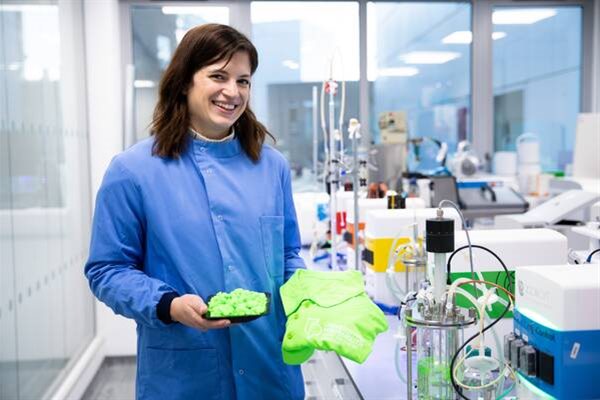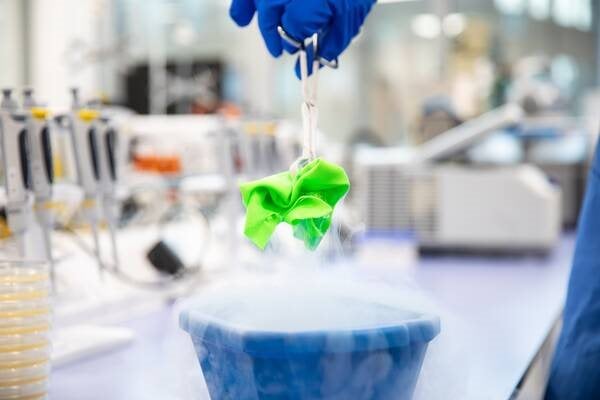Plastic-eating enzymes could help combat fashion's polyester waste problem

Polyester is the most widely-used clothing fibre in the world but is currently not a sustainable textile option and will likely end up discarded in landfill or polluting the environment. It is made from polyethylene terephthalate (PET), one of the most common consumer plastics.
Energy efficiency the great challenge
Researchers at the University’s Centre for Enzyme Innovation have already developed enzyme technology to reduce single-use plastics, including PET, to their chemical building blocks, leading to safe and energy-efficient recycling. Now they have set their sights on creating a similar process for polyester textiles.

The process of recycling synthetic fabrics using enzymes will not be an easy one. It is estimated that these textiles account for 60% of clothes that are worn, and are often chosen for durability.
The addition of dyes and other chemical treatments make it even harder for these tough oil-based materials to be ‘digested’ in a natural process. Developing enzymes that can efficiently ‘eat’ polyester clothing, without energy-intensive pre-treatment, is the biggest challenge.

Professor Andy Pickford, director of the Centre for Enzyme Innovation at the University of Portsmouth said: “We will develop enzymes that can deconstruct the PET in waste textiles, tolerating the challenges that this feedstock poses, namely its toughness and the presence of dyes and additives.
“We will test the compatibility of our engineered enzymes with additives, dyes and solvents to select those enzymes that are best suited to polyester textile deconstruction. Then we will apply these enzymes to appropriately pretreated waste polyester textiles in laboratory-scale bioreactors to evaluate the potential and limitations of scaling up the technology.”
Low rates of recycling
Clothing has some of the lowest rates of recycling, with much of it being incinerated or ending up in landfill. Whilst it is possible to turn good quality oil-based textiles into carpets and other products, current recycling methods are highly energy intensive. Scientists hope that enzymes developed at the University of Portsmouth will help them create a environmentally-friendly circular economy for plastic-based clothing.
Professor Pickford said: “Our research will establish the feasibility of using enzymes to deconstruct the PET in waste textiles into a soup of simple building blocks for conversion back into new polyesters, thus reducing the need to produce virgin PET from fossil-fuel based chemicals. This will enable a circular polyester textiles economy and ultimately reduce our dependence on taking oil and gas out of the ground.
“We want a system that uses plastic in the same way we use glass or tin cans – infinitely recycled. The ultimate aim is to close the loop – however, this requires not only the technology but also the will to do so."
The research, which is funded by the Biotechnology and Biological Sciences Research Council (BBSRC), started at the end of January this year and will last for 18 months. The university team will work with project partners Biomimicry Institute, which will provide expertise in natural solutions to sustainability challenges, and Endura Sports clothing, which will share its knowledge of fabric dyes and provide samples of end-of-life polyester textiles.
Related
TFG adds warmth to City of Cape Town’s Safe Spaces 20 Mar 2025 Working backwards to save the sea 24 Dec 2024 5 fairness flaws the UN’s new plastics treaty must change 9 Dec 2024 Global brands in developing markets: The unseen environmental and commercial gaps 14 Nov 2024 Nestlé’s commitment to sustainable packaging 22 Oct 2024 Surprising study: Amount of plastic ingested by seabirds remains unchanged since the 80s 16 Sep 2024























